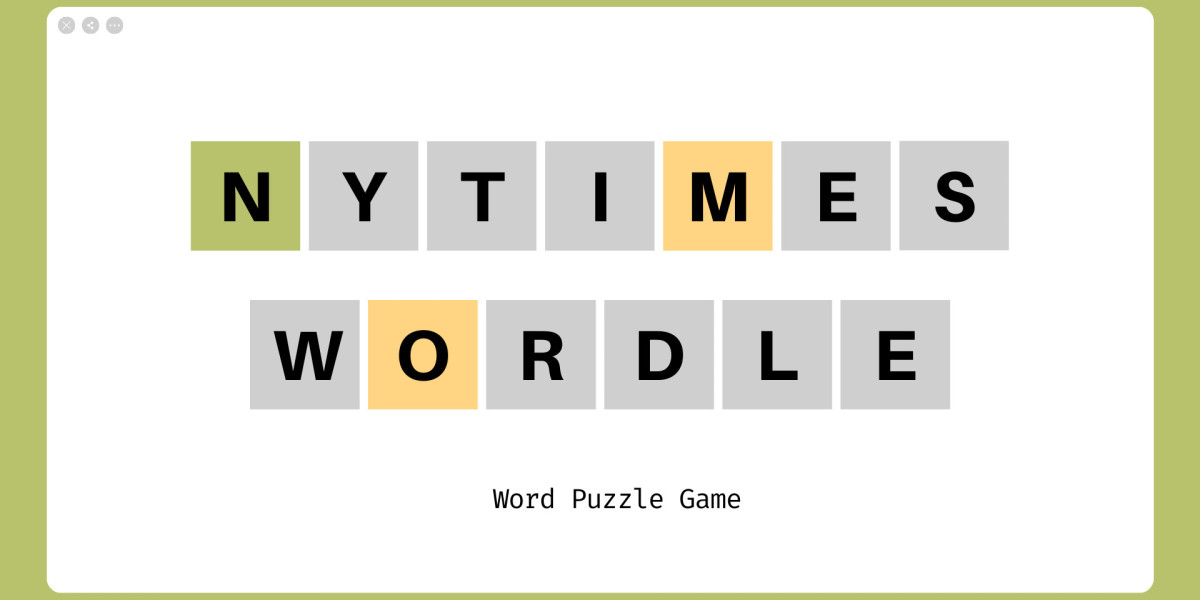Wordle is a daily word puzzle game where players have six attempts to guess a five-letter word. With every guess, the game provides feedback by coloring the tiles: green indicates a correct letter in the correct position, yellow shows a correct letter in the wrong position, and gray signals that the letter is not in the word at all.
The beauty of NYTimes Wordle lies in its simplicity—you only need a browser to play, and there’s no app to download. The challenge, however, is balancing luck and strategy to solve the puzzle in as few tries as possible.
Why Wordle Is So Addictive
Understanding the psychology behind Wordle’s appeal can help you better appreciate the game and develop strategies to win. Wordle’s addictive nature stems from the following factors:
Daily Challenge: You only get one Wordle puzzle a day, creating a sense of anticipation and urgency.
Social Connection: Players love sharing their results with friends and family or on social media.
Instant Gratification: Solving the puzzle gives an immediate sense of accomplishment.
Mastering Wordle means you’ll not only enjoy the game more but also have bragging rights to share those coveted "all green" grids.
The Importance of Starting Words
Choosing the right starting word is critical in Wordle. A good starting word can give you immediate insights into the puzzle and set you up for success. Here are a few tips:
1. Use Words with Common Vowels
Vowels play a crucial role in most English words. Starting with a word containing multiple vowels (like ADIEU or AUDIO) can help you eliminate or confirm several letters early on.
2. Include Common Consonants
In addition to vowels, high-frequency consonants like R, S, T, L, and N can be invaluable. A word like STARE or SLATE is often a strong opening move.
3. Avoid Repeating Letters Early
Using a word with non-repeating letters ensures that you maximize your chances of identifying unique letters in your first guess. For instance, CRANE is a better starting word than SHEET because it covers more ground.
Analyzing the Feedback
Each guess in Wordle provides critical feedback. Here’s how to interpret and act on the colored tiles:
Green Tiles: Lock these letters in their correct positions for your next guess. They’re your confirmed foundation.
Yellow Tiles: Move these letters around in subsequent guesses to determine their correct placement.
Gray Tiles: Avoid using these letters in future guesses unless you’re forced to.
Strategies for Mid-Game Success
Once you’ve made your first guess and received feedback, it’s time to narrow down your options. Here are some mid-game strategies to keep in mind:
1. Focus on Eliminating Possibilities
Your goal is to whittle down potential word choices systematically. For example, if your first guess is CRANE and the feedback indicates that R and A are correct but misplaced, try a word like PARTY to test different positions for these letters.
2. Think About Letter Patterns
Consider common word patterns or clusters. For instance, many English words end in -ING or start with TH-. Use your knowledge of these patterns to guide your guesses.
3. Avoid Wasting Guesses
Every guess counts, so don’t throw away a turn with random words. Each guess should either test new letters or confirm the placement of known ones.
Common Pitfalls to Avoid
Winning Wordle consistently also means steering clear of common mistakes. Here are a few to watch out for:
Ignoring Feedback: Always update your guesses based on the feedback provided. If a letter is marked gray, don’t use it again.
Overthinking: While strategy is important, don’t let yourself spiral into overanalysis. Sometimes simple, intuitive guesses work best.
Rushing: Take your time to consider all possibilities before submitting a guess.
Advanced Wordle Tips
Ready to take your Wordle game to the next level? Here are some advanced tips for seasoned players:
1. Use Word Lists
Familiarize yourself with lists of five-letter words. Websites and apps that offer word lists can be helpful for learning patterns and improving your vocabulary.
2. Memorize Common Letter Combinations
Certain letter combinations occur frequently in English. For example, TH, CH, and SH often appear at the beginning of words, while ER, ED, and LY are common endings.
3. Keep Track of Past Words
The New York Times Wordle never repeats a word, so keeping track of past solutions can prevent you from wasting guesses.
Tools and Resources to Improve Your Game
If you want to sharpen your Wordle skills, consider using these resources:
Wordle Solvers: These tools can suggest possible words based on your feedback, though they’re best used as a learning aid rather than a shortcut.
Online Word Dictionaries: Use dictionaries to expand your vocabulary and discover new five-letter words.
Practice Games: Many Wordle alternatives let you play unlimited puzzles, giving you more opportunities to refine your strategy.
The Social Aspect of Wordle
Wordle isn’t just a solitary game—it’s also a social experience. Sharing your results with friends can add a competitive or collaborative dimension to the game. Here are some ways to make the most of Wordle’s social aspect:
Compare Strategies: Discuss tactics with friends to learn new approaches.
Challenge Each Other: See who can solve the day’s puzzle in the fewest guesses.
Join Online Communities: Wordle enthusiasts often share tips, tricks, and insights on forums and social media.
Why Practice Makes Perfect
Like any skill, improving at Wordle takes practice. The more puzzles you solve, the better you’ll become at recognizing patterns and narrowing down possibilities. Don’t get discouraged by occasional misses—use them as learning opportunities.
Conclusion
Wordle is more than just a game; it’s a test of your vocabulary, logic, and problem-solving skills. By implementing these tips and strategies, you can turn Wordle into a daily win. Remember to start with strong opening words, analyze the feedback carefully, and use your guesses wisely. With consistent practice and a strategic approach, you’ll soon find yourself dominating the Wordle grid and impressing your friends with your skills.
So, go ahead and try these hacks in your next Wordle game. Winning every time may be ambitious, but with these strategies in your toolkit, you’ll be solving puzzles like a pro!






